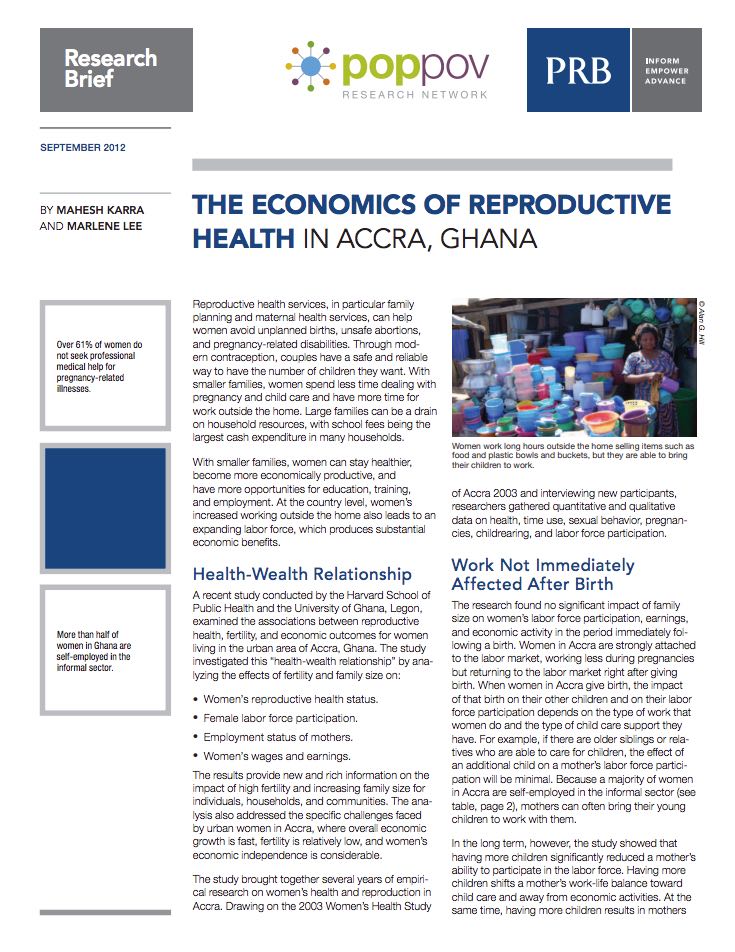
The Economics of Reproductive Health in Accra, Ghana
Date
September 25, 2012
Author
(September 2012) Reproductive health services, in particular family planning and maternal health services, can help women avoid unplanned births, unsafe abortions, and pregnancy-related disabilities. Through modern contraception, couples have a safe and reliable way to have the number of children they want. With smaller families, women spend less time dealing with pregnancy and child care and have more time for work outside the home. Large families can be a drain on household resources, with school fees being the largest cash expenditure in many households.
With smaller families, women can stay healthier, become more economically productive, and have more opportunities for education, training, and employment. At the country level, women’s increased working outside the home also leads to an expanding labor force, which produces substantial economic benefits.
This PopPov network research brief highlights findings from a recent study conducted by the Harvard School of Public Health and the University of Ghana, Legon. The study examined the associations between reproductive health, fertility, and economic outcomes for women living in the urban area of Accra, Ghana, and investigated this “health-wealth relationship” by analyzing the effects of fertility and family size on:
- Women’s reproductive health status.
- Female labor force participation.
- Employment status of mothers.
- Women’s wages and earnings.
The PopPov Network makes research grants, supports dissertation fellows, sponsors meetings and workshops, and now provides an online space for the poppov research community. The goal of the network is to highlight the needs of the researchers, highlight state of the art methodologies, encourage and teach the next generation of researchers, and share ideas and communicate findings among the research community.
For related research on other issues pertaining to women’s health in Accra, see the editorial in the June 2012 Ghana Medical Journal, and browse the rest of the issue.
Mahesh Karra was a policy analyst in International Programs at PRB. Marlene Lee is program director, Academic Research and Relations, at PRB.

 ">
">